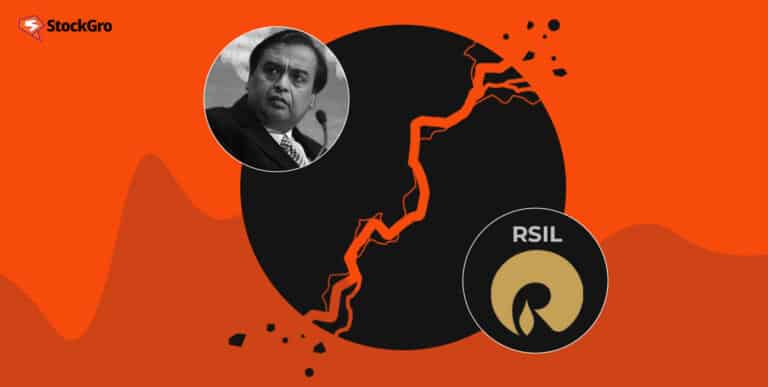
Are you worried about India’s rising CO2 emissions? You’re not alone. The Reserve Bank of India (RBI) just released a report on currency and finance, warning that India’s CO2 emissions could rise from 2.7 gigatonnes in 2021 to a staggering 3.9 gigatonnes by 2030. That’s a lot of carbon!
But don’t worry, the RBI has a plan. They recommend a policy mix that includes a carbon tax of $25 per tonne, a gradual increase in non-fossil fuel usage, the use of electric vehicles, and green hydrogen production.
Additionally, regulatory measures will be put in place to incentivise resource allocation for green projects. This multi-pronged approach could bring CO2 emissions down to just 0.9 gigatonnes by 2030. If we need to lower them even more, higher carbon tax rates could be implemented.
What is ESG, and why should we care?
In today’s world, we all want to make a difference and live in a sustainable environment. But have you ever thought about how the companies we invest in are doing their part? That’s where ESG comes in.
ESG stands for Environmental, Social, and Governance, and it’s used to evaluate a company’s sustainability and ethical practices. These factors are broken down into three main categories:
Environmental: This includes a company’s carbon footprint, waste management, and resource conservation.
Social: This considers a company’s impact on employees, customers, and the community. It includes labour practices, diversity and inclusion policies, and philanthropy.
Governance: This looks at a company’s leadership and management practices, including board diversity, executive compensation, and shareholder rights.
You may also like: GoFirst Bankruptcy: Airline’s possibility of revival seems unlikely
The rise of ESG
ESG has been gaining popularity in recent years as consumers, investors, and regulators demand more accountability and transparency from companies. In fact, a 2020 survey found that 71% of millennials are more likely to buy from companies that align with their values.
ESG was first introduced in 2004 with the publication of “Who Cares Wins,” a report by a group of 18 banks and investment firms recognized by the United Nations. Since then, ESG has become a key framework for assessing a company’s overall performance and sustainability.
What is ESG’s significance in investing?
ESG is especially significant in India, where the government is pushing for sustainable development and social responsibility. In fact, the Securities and Exchange Board of India (SEBI) recently made it mandatory for the top 1,000 listed companies to disclose their ESG initiatives.
But ESG investing is not just for big corporations. Individual investors can also incorporate ESG into their investment strategy by choosing mutual funds or exchange-traded funds (ETFs) that prioritize ESG.
So, the next time you’re thinking about investing in a company, remember to ask yourself: What’s their ESG score? Are they making a positive impact on the world? And most importantly, do their values align with mine?
What are ESG funds?
ESG funds are mutual funds that invest in companies that meet specific environmental, social, and governance (ESG) criteria. These funds aim to generate returns while promoting sustainable investing practices and making a positive impact on society and the environment.
You may also like: What is the role of FIIs in the Indian stock market?
Recent SEBI guidelines
SEBI mandated that the top 1000 listed companies by market capitalization must report their ESG data as per the requirements of the Business Responsibility and Sustainability Reporting (BRSR) starting from FY 2023.
Additionally, SEBI has mandated asset management companies (AMCs) to provide disclosures on votes cast on resolutions of ESG issues. This move is also favourable for the investor community that is keen to invest in green, sustainable, and impact funds.
| Top banks by volume of energy supply finance in 2021 |
| Name of Bank | Low-carbon energy ($ Billion) | Fossil fuels ($ Billion) |
| JP Morgan Chase | 42 | 57 |
| Citi Bank | 33 | 44 |
| Bank of America | 36 | 32 |
| Wells Fargo | 16 | 37 |
| Mizuho Financial Group | 21 | 31 |
Status of ESG implementation in India
The last financial year (2022-23) was the first year for mandatory ESG reporting by the top 1,000 companies in India. So, India is at a nascent stage for ESG implementation. The regulators have been quick to identify some of the loopholes and are taking well-thought steps to plug them at the earliest.
What is ESG risk?
ESG risk refers to the possibility that a company’s operations or products may cause harm to the environment and society or lead to governance issues.
ESG risk can impact a company’s financial performance, as well as its reputation. Investors evaluate ESG risk in a number of ways, such as:
Conducting ESG audits: Investors may conduct audits to assess the ESG risks associated with a company’s operations, supply chain, and products.
Looking at ESG scores: ESG scores are a numerical measure of how well a company is performing on ESG issues. Investors may use these scores to evaluate a company’s ESG risk.
Analysing sustainability reports: Many companies now produce sustainability reports, which provide information on their ESG performance. Investors may use these reports to assess ESG risk.
You may also like: BYJU’s faces ED probe over Rs. 9754 Cr foreign transfers
What is an ESG index?
An ESG index is a stock market index that includes companies with high ESG scores. ESG indices can be used by investors to create socially responsible investment portfolios. They are designed to track the performance of companies that meet high ESG standards.
ESG indices typically use a number of factors to determine which companies to include. These factors may include:
Environmental performance: Companies with strong environmental performance, such as those with low carbon emissions or sustainable supply chains.
Social performance: Companies that have positive social impacts, such as those that promote diversity and inclusion or have strong labour practices.
Governance performance: Companies that have strong governance practices, such as those with transparent decision-making processes or independent boards.
Is ESG the real deal or just a marketing gimmick?
The challenge of ‘Greenwashing’
Unfortunately, not all companies that claim to be sustainable actually are. Greenwashing, or using false or misleading information to market environmental responsibility, is a real problem. Studies have shown that many ESG funds include companies that are far from being socially and environmentally responsible.
Challenges faced by companies
Implementing ESG can be challenging for companies. Some of the obstacles they face include:
Limited awareness: Many companies don’t fully understand what ESG is or how to implement it.
Inadequate resources: It takes time, money, and expertise to integrate ESG considerations into business practices.
Varying data: There is no universal standard for ESG reporting, so data can be difficult to compare.
Emerging regulations: Guidelines and regulations surrounding ESG are still evolving.
Clearly, not all funds claiming to be ESG-friendly are doing so. Challenges remain. However, this is a new and growing investment approach. So, the next time you’re considering where to put your money, think about how ESG factors into the equation.

